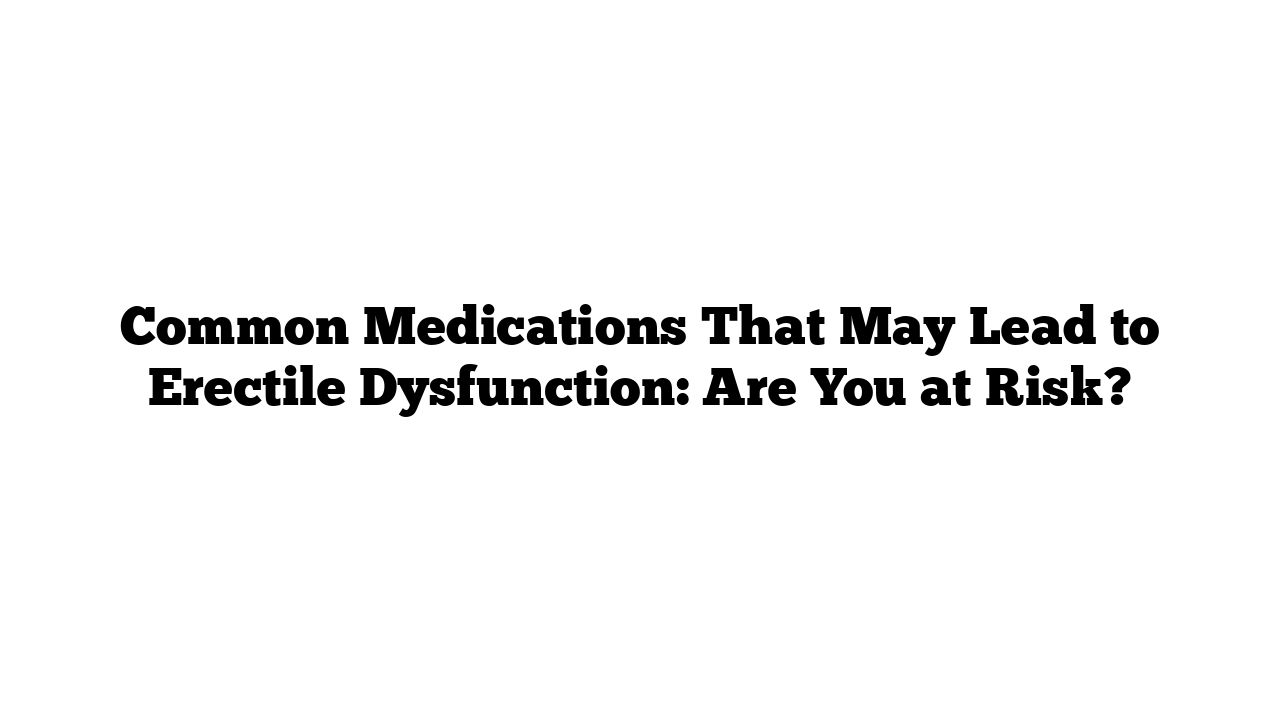Erectile dysfunction (ED) can be a distressing condition, but it’s more common than you might think. While it can happen after drinking too much alcohol, ED could also be linked to medications you take regularly.
As Dr. Donald Grant, GP and senior clinical advisor at The Independent Pharmacy, explains: “Erectile dysfunction affects millions of men worldwide. About 50% of men aged 40 to 70 experience ED at some point.”
Identifying the potential causes, including medications, is important for managing this condition.
Medications That May Increase ED Risk
Several types of medications can contribute to erectile dysfunction. Here are four common examples:
1. Beta Blockers
Beta blockers, often used to manage high blood pressure, can affect your ability to achieve or maintain an erection. Dr. Grant notes that drugs like atenolol and propranolol can lower testosterone and blood flow, both crucial for a healthy erection.
If you’re taking beta blockers and experiencing ED, consult your doctor before stopping the medication.
2. Antidepressants
Medications like citalopram, sertraline, and fluoxetine, used to treat depression, can reduce libido and cause sexual dysfunction. According to Dr. Grant, these drugs affect hormones like serotonin, which can influence testosterone and dopamine levels.
If you’re concerned about this side effect, discuss alternative treatments with your healthcare provider.
3. Painkillers (NSAIDs)
Common painkillers, including aspirin and ibuprofen, fall under the category of non-steroidal anti-inflammatory drugs (NSAIDs). These drugs can interfere with blood flow, potentially leading to ED.
It’s essential to manage your intake and follow the recommended dosages to reduce the risk of side effects.
4. Antihistamines
Antihistamines, often taken for allergies, block the release of histamine. This chemical helps improve blood flow, which is necessary for erections. According to Dr. Grant, antihistamines may increase the risk of ED.
Make sure you monitor your dosage and speak to a healthcare professional if you’re concerned.
Tips for Managing ED
Maintaining a healthy lifestyle can help reduce the impact of ED. Dr. Grant recommends a balanced diet rich in foods that boost blood flow, such as apples, walnuts, and leafy greens. Also, limit alcohol consumption, as excessive drinking can worsen erectile dysfunction.
Regular check-ups with your GP can help catch underlying causes of ED early, such as high blood pressure, diabetes, or anxiety.
Understanding Erectile Dysfunction
Erectile dysfunction, or impotence, occurs when a man is either unable to get or maintain an erection. It’s common, especially in men over 40. The condition can stem from stress, tiredness, too much alcohol, or certain medications. If it’s persistent, ED may indicate underlying issues like:
- High blood pressure or cholesterol
- Diabetes
- Depression or anxiety
- Hormonal problems
Physical Causes of ED
Four main types of physical conditions can lead to erectile dysfunction:
- Vasculogenic disorders: Conditions like cardiovascular disease and diabetes that affect blood flow to the penis.
- Neurogenic disorders: Nerve-related issues such as Parkinson’s disease or multiple sclerosis.
- Hormonal disorders: Hormonal imbalances that affect sexual function.
- Anatomical conditions: Physical problems with the penis tissue or structure.
Age is also a significant factor in the development of ED. However, addressing the underlying causes and seeking medical advice can help manage the condition effectively.
